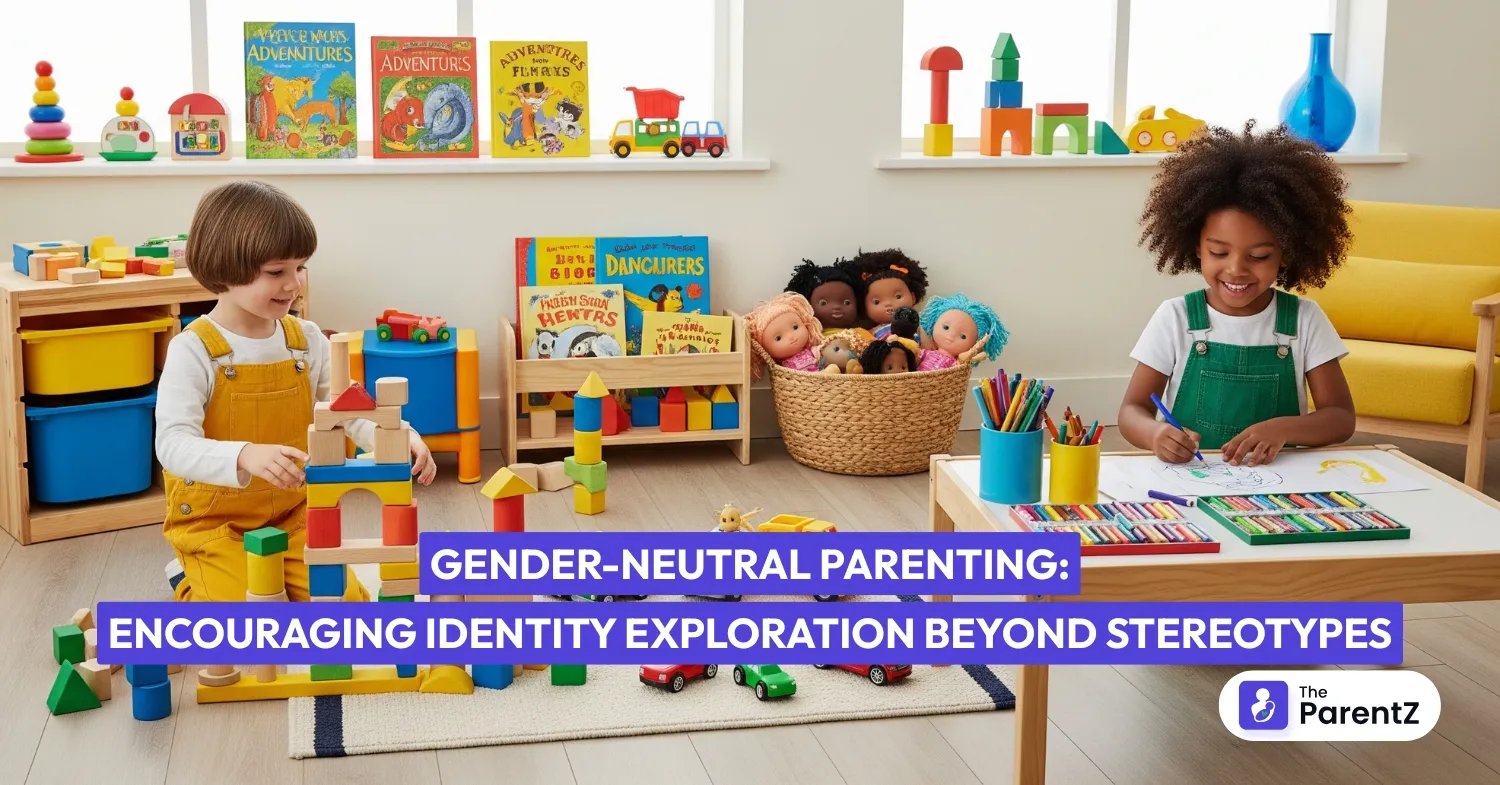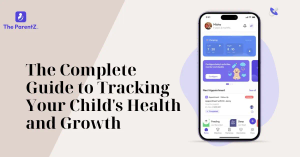Picture this: Your 4-year-old son asks for a pink backpack, and suddenly, everyone at the store has an opinion. Or your daughter wants to play with trucks, and relatives start making comments about "proper" toys for girls.
Welcome to the world of parenting in 2025, where old-school gender rules are being questioned like never before.
But let us get one thing straight: gender-neutral parenting isn't just another Instagram trend or a way for parents to show how progressive they are. It's actually rooted in decades of child psychology research and a growing understanding of how kids really develop their sense of self.
What Gender-Neutral Parenting Actually Means
Gender-neutral parenting doesn't mean you're trying to make your child gender-neutral or that you're ignoring their biological sex. It's not about forcing boys to wear dresses or banning pink from your daughter's wardrobe.
What it really means is giving your child the freedom to explore interests, emotions, and expressions without the weight of "that's not for boys" or "girls don't do that" holding them back. It's about letting them discover who they are naturally, rather than fitting them into boxes that society has pre-made.
Why This Approach is Gaining Ground
The rise in gender-neutral parenting isn't happening in a vacuum. We're seeing real changes in how society views gender roles, and parents are responding to what they're observing in their own kids.
Research shows that children who aren't restricted by rigid gender expectations tend to have better emotional intelligence, stronger problem-solving skills, and higher self-esteem. When kids feel free to express their full range of emotions and interests, they develop into more well-rounded individuals.
We're also living in a world where traditional career paths are shifting. The jobs our kids will have might not even exist yet, so why limit their skill development based on outdated gender assumptions? A boy who learns nurturing through playing with dolls might become an excellent pediatric nurse. A girl who builds with blocks and takes things apart might become the next great engineer.
The Real Benefits
Here's what actually happens when you parent without strict gender boundaries:
- Emotional Development: Kids learn that all emotions are valid. Boys don't have to suppress sadness or fear, and girls don't have to hide anger or assertiveness. This leads to better mental health and stronger relationships later in life.
- Skill Building: When children aren't limited by gender expectations, they develop a broader range of abilities. Cooking, cleaning, building, nurturing, problem-solving, and leadership become skills that all kids can master.
- Confidence: Children who aren't constantly corrected about their interests develop stronger self-confidence. They learn to trust their instincts about what they enjoy rather than second-guessing themselves based on external expectations.
- Empathy: Kids exposed to diverse ways of being tend to be more accepting of others who are different from them. This creates more inclusive, kinder humans.
How to Actually Do This (Without Going Overboard)
The key to successful gender-neutral parenting is balance and intention. You don't have to throw out everything you know or completely rebuild your parenting style overnight.
- Start Small: Pay attention to the language you use. Instead of "big boys don't cry," try "it's okay to feel sad sometimes." Rather than "act like a lady," say "please use your inside voice."
- Expand Their World: Offer various toys, books, and activities. Let them try different sports, art forms, and hobbies. But don't force it, just follow their natural curiosity.
- Question Your Own Biases: We all have them. Notice when you automatically assume certain interests or behaviors based on your child's gender. It's normal, so just try to catch yourself and adjust.
- Create Space for All Emotions: Teach all children that crying, anger, gentleness, and assertiveness are human emotions, not gendered ones.
Finding Your Family's Balance
Remember, this isn't about creating a gender-free household or ignoring the fact that gender exists in society. It's about creating space for your child to be authentically themselves while still preparing them for the real world.
Some families might choose gender-neutral clothing and toys. Others might focus more on language and emotional expression while keeping traditional elements. There's no single right way to do this.
The most important thing is being intentional about your choices and staying connected to your child's unique personality and needs.
Conclusion
Gender-neutral parenting works best when it comes from a place of love and understanding rather than rebellion or trend-following. It's about seeing your child as a complete human being with unlimited potential rather than a collection of gender-based expectations.
Your child will encounter gender stereotypes in the world, as that's inevitable. But by giving them a strong foundation of self-acceptance and the tools to think critically about these messages, you're preparing them to handle these challenges with confidence.
The goal isn't to shield them from gender entirely, but to give them the freedom to choose what fits them and what doesn't.





Be the first one to comment on this story.